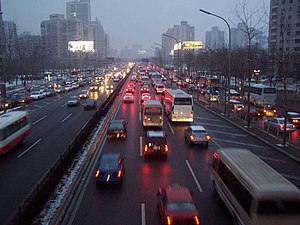Rail Cost More Expensive Than Car Cost
Thursday, 25. September 2014
You may or may not know that taxi fares are calculated (automatically via software in the metre) using a mixture of time and distance. For example, the cabs in London travelling between 06.00 and 22.00 on a normal weekday (excluding bank holidays) charge according to Tariff 1. For the first 252.4 metres or the first 27.1 seconds (whichever is reached first) there is a minimum charge of £2.40.
Thinking of a change but unsure as to the best way to finance your car? Then you need a copy of my car finance book, Car Finance – A Simple Guide by Graham Hill. Click on the link below to buy the best car finance book on the market, available as a Kindle Book and Paper Back.
For each additional 126.2 metres or 27.1 seconds (whichever is reached first), or part thereof, if the fare is less than £17.40 then there is a charge of 20p. Once the charge has reached £17.40 the charge increases to 20p per 88.5 metres or 19 seconds (whichever is reached first), or part thereof.
As it’s easier to calculate the cost per mile than per hour (we don’t know the speed the cab will travel at) the rate goes from £15.30 per mile to £2.55 per mile after the minimum charge then it increases again to £3.64 per mile once the charge reaches £17.40. All very complicated but converting into a cost per mile provides us with a better perspective.
So I was quite surprised to read a totally different perspective on rail fares following the last, above inflation, fare rise announcement. It was not only shocking but also gave us a very good reason why people are still not choosing to take public transport over their precious car. The report suggested that peak time rail fares are one of the worst value items, sitting alongside car insurance, inner city/airport parking, energy bills and car mechanics charged by some dealers at £200 per hour.
The columnist explained that his short, early morning trip cost an amazing £1.20 per minute travelled or £72 per hour. So comparing that with a black cab after the minimum charge of £2.40 you pay 20p per 27.1 seconds or £0.44 per minute or £26.40 per hour. Is it me and the columnist, Mike Rutherford, or is this madness? He calculated that those doing the 121 minute trip between Manchester and London during peak time costs them £1.33 per minute or £80 per hour.
He points out that it is just a matter of time before 2nd class peak travel will reach £100 per hour or £150 per hour first class. Apparently an annual season ticket between London and Manchester costs £14,000 which works out at £1.33 per minute. He then compared that with the cost of a new Mini which, after allowing for ALL running costs including the cost of the car, fuel, insurance, servicing, RFL, depreciation etc. it came in at 33p per minute if you assume an average 60mph.
Now this may be a little unrealistic but it puts rail travel into context. No wonder people still want to avoid train travel! By Graham Hill
Related articles
- Rail passengers ‘hit with £664 fare rise’ (telegraph.co.uk)


![Reblog this post [with Zemanta]](http://img.zemanta.com/reblog_e.png?x-id=af1de20d-9a83-4974-b1b9-6e0b4db4b245)